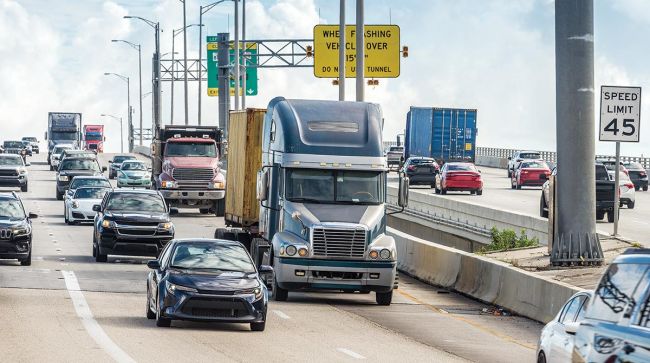Industry Insight from RXO Experts
RXO Air Freight Market Update
RXO Air Transport supports all of RXO’s lines of business and provides customers with 24/7/365 global solutions that offer maximum speed and agility. RXO’s air solutions include on-demand charter, scheduled air freight, on-board courier (OBC) and dedicated capacity solutions. RXO’s exclusive air fleet of Saab 340B+ midsize cargo aircraft services the U.S., Mexico, Canada and Caribbean, and we can expedite virtually any cargo, including documents, small packages, hazmat, and oversize or heavy-lift payloads. Transit time is typically same day or less than 12 hours within USMCA to about 24 to 36 hours globally. Our experts can create custom air solutions for recurring or long-term needs. Our air leadership team has 250 years of collective military, commercial and business aviation expertise, backed by a proprietary air TMS and a global network of air carriers.
Capacity for charter and air freight remains elevated due to reduced global and U.S. trade volumes and high commercial passenger volume (air freight), in addition to a seasonal Q2/Q3 moderation in volume from the automotive sector. Most payload categories and lanes are seeing 20-30% lower rates. For example, U.S. charters for <8 pallet payloads are $25,000 to less than $50,000, and air freight rates are between $1 and $3 per kg from the U.S. to Europe or Asia and between $3 and $5 per kg from Europe/Asia to the U.S.
Eric Giangiordano
Sr. Director, Air Transport

RXO in the News
RXO Expands Ann Arbor Office
Tech-enabled freight brokerage will add 140 new jobs in Michigan.
RXO Leader Named SupplyTech Breakthrough Company CEO of the Year
Drew Wilkerson named Company CEO of the Year by SupplyTech Breakthrough.
RXO Expands Columbia, South Carolina Office
The company invested $1.3M in the 10,000-square-foot facility.
Top Industry News
Spot Rate Reactivity on the Rise
The recent rise in spot rates is a product of freight pattern shifts and elevated contracts.
The average dry van truckload spot rate excluding the estimated cost of fuel (NTIL) has increased 4.2% since the end of April, while carrier contracted load rejection rates are still near all-time lows. While overall capacity is still extremely loose, some areas of the country have seen increasing spot rates and underlying freight flows continue to shift.
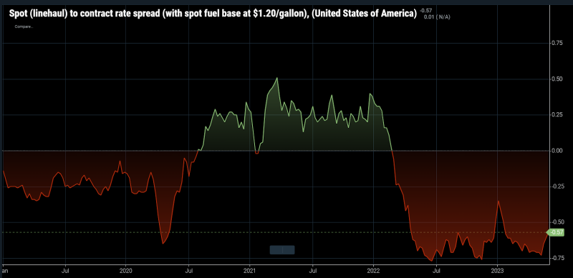
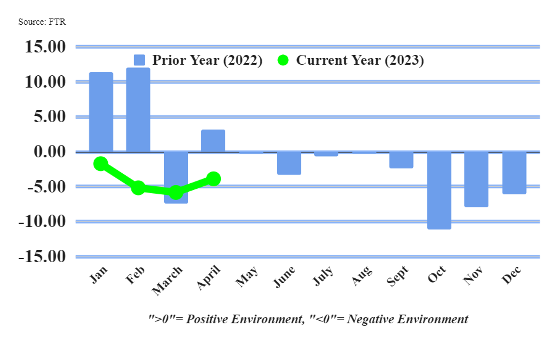
FTR’s Trucking Conditions Index Shows Modest Improvement while Long-Term Issues Remain Intact
FTR said improvement was due to stronger freight volume and a somewhat less negative environment for financing costs. And it added that weaker capacity utilization and a deceleration in fuel cost decreases partially offset those improvements. Looking ahead to the coming months, FTR said it expects negative TCI readings to remain intact through the middle of 2024.
U.S. and Global Macroeconomics
Supply Chain Legislation Awaits Votes in House, Senate
Several lawmakers calling for passage of big picture bills before August recess.
Industry Sector Rankings Show Growth, Acquisitions by Carriers
Most of North America’s largest for-hire motor carriers operating in many diverse segments of the trucking industry reported higher revenues last year as contract freight rates held up far better than spot market activity.
GDP Growth in Q1 2023 Revised to 2%
National average diesel prices have fallen every week since a 1.8-cent increase April 17.
Biden Administration Announces Infrastructure Investments
DOT gives $2.2 billion in funding for 162 projects.

Truckload and LTL
Transportation Prices Fall at Fastest-Ever Pace in May
Supply chain activity slid to an all-time low for a third straight month in May, according to data compiled in the Logistics Managers’ Index (LMI).
A report aggregating responses from supply chain executives showed the index stood at 47.3, the first reading in contraction territory for the 6.5-year-old data set. The mark was 3.6 percentage points below the April level and notably below a neutral level of 50.

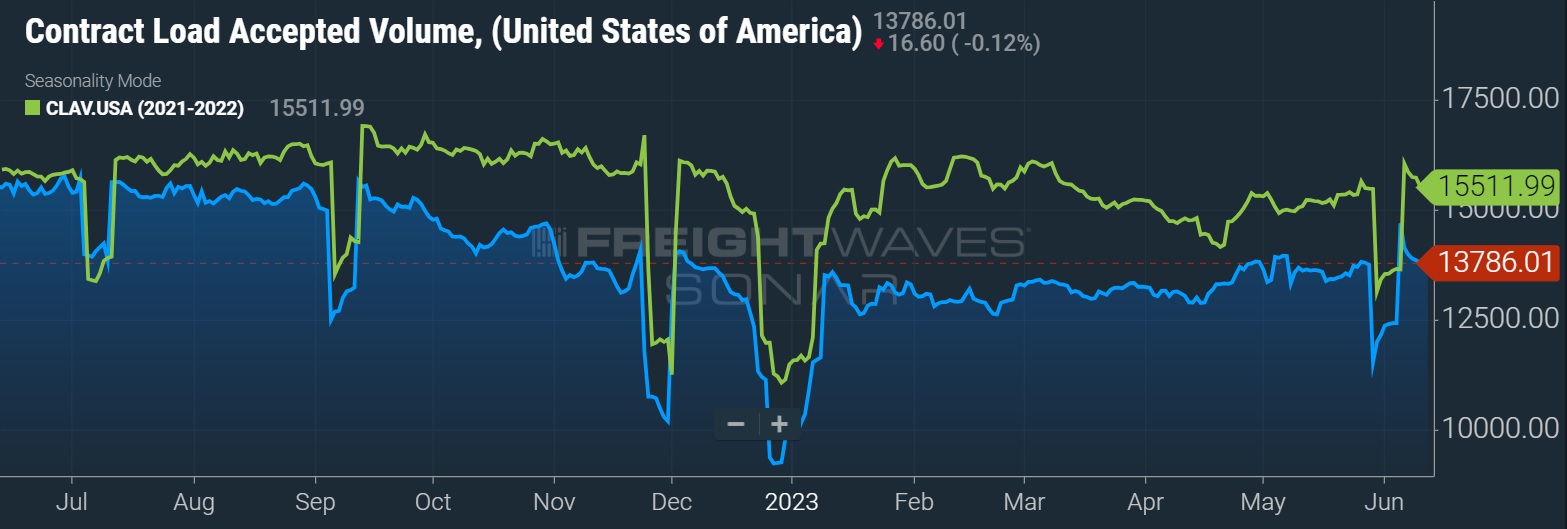
Freight Shipments, Spend See Largest Y/Y Declines in Nearly 3 Years
“Declining real retail sales trends and ongoing destocking remain the primary headwinds to freight volumes, but dynamics are shifting as real incomes improve and the worst of the destock is in the rearview,” ACT Research’s Tim Denoyer commented.
Modes Overview

- Speed Still Rules in Home Delivery, Study finds. More from FreightWaves.
- Teamsters Break Off UPS Talks, Warn Strike ‘Inevitable’. More from Transport Topics.

- Container Shipping Trilemma: Weak Rates, New Ships, Pricey Charters. More from FreightWaves.
- Air Cargo’s Busy Season Looking more like Molehill than Mountain Peak. More from FreightWaves.
- Train Derailment Sends Tanker Cars into Yellowstone River. More from FreightWaves.

- RXO Makes Dedicated Freight Accessible, Desirable for Shippers and Carriers. More from FreightWaves.

- Canadian Pacific Kansas City expands Mexico intermodal reefer rail service. More from FreightWaves.
Infrastructure and Regulation
USDA Offers Up to $500 Million in Biofuel Grants
Agriculture Secretary Tom Vilsack announced that up to $500 million in federal funds are available to boost supplies of American-made biofuel while awarding $25 million to 59 biodiesel and ethanol infrastructure projects across the country.
CSX and CPKC Will Connect to Increase Traffic in Southeast
- CSX and CPKC railroads announced a deal June 28 that will allow them to beef up a little-used connection between their two networks in the southeastern United States to handle a significant amount of freight.
- The deal involves a section of track linking the two massive railroads that is currently used only for local traffic. This could one day turn it into a major pipeline for all kinds of cargo.
SAE International Plans to Standardize Tesla’s EV Chargers
A key U.S. automotive industry organization says it will set performance standards for Tesla’s electric vehicle charging cords in another move toward using the Tesla plug on all EVs.
The move by SAE International, formerly the Society of Automotive Engineers, comes just weeks after Ford, General Motors and Rivian said they would join Tesla’s large Supercharger network and adopt its North American Charging Standard connector in new versions of their electric vehicles. But a rival connector called CCS is still in thousands of current EVs and will stay in use.

Cross-border: Mexico, Canada and International
Railroads Move to Create More Access Between Mexico, Texas, US Southeast
Aiming to keep up with competitors in road and sea transportation, three major freight railroads announced plans to create a new trade route for shippers connecting Mexico, Texas and the U.S. Southeast.
Florida Tomato Growers want U.S. to Terminate Mexico Trade Deal
A trade group is calling on the U.S. to end the 2019 Tomato Suspension Agreement with Mexico, saying it has failed to protect Florida growers against unfair trade practices.
CN Adjusting Rail Operations Amid Fierce Canada Wildfires
Railway in contact with shippers as it assesses wildfire situation.
Technology
Chinese Chipmaker Asks Suppliers to Buy Back Banned Gear
The company is China’s foremost developer of memory chips, but broad U.S. export restrictions and its inclusion on a trade blacklist in late 2022 deprived the organization of access to the latest manufacturing hardware.
As Electric Truck Batteries Evolve, it’s all About the Range
Chemistry holds the key to moving beyond regional and drayage hauling.
EV Makers Racing for Supplies of Lithium for Batteries
Potential lithium shortage poses roadblock to ramped up EV production.

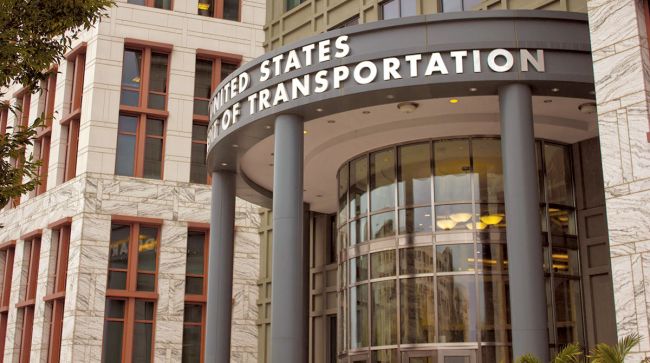
Initiatives – Safety and Sustainability
FMCSA Plans Driver Behavior Study on Self-Driving Trucks
The Federal Motor Carrier Safety Administration is seeking approval from the Office of Management and Budget to conduct a human-factors study that will examine the effect of nondriving secondary task engagement, transfer of control and training on driver behavior in commercial motor vehicles equipped with L2 advanced driver-assistance systems and L3 automated driving systems.
.
Senate EPW Leaders Introduce Diesel Emissions Bill
Legislation that would reauthorize the Diesel Emissions Reduction Act through fiscal 2029 was recently introduced in the U.S. Senate. Legislation is designed to promote health benefits by improving air quality.
